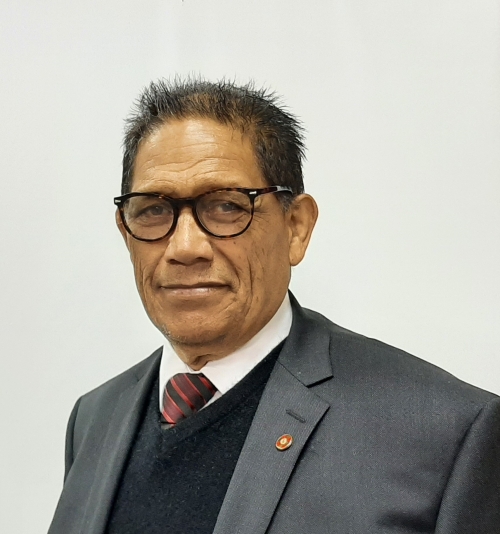
Having sustainable practices and mutual reciprocity between the demands of man versus the needs of Te Taiao (environment) is an inherent requirement of a kaitiaki (guardian) says Biodiversity Hawke’s Bay Trust Board Deputy Chair Des Ratima.
Speaking at Forest & Bird’s Hastings-Havelock North Branch meeting recently, Mr Ratima says that often profit is put ahead of the protection of the environment, when protection does not have to come at a financial cost.
“There is a constant pulling between the environment; Te Taiao and the dollar and inevitably the dollar wins out and the cost is to the environment,” Mr Ratima said.
“We all know that if we mistreat Te Taiao, then there are repercussions in the way our lakes and rivers are – there is pollution in the waterways, reduction in fish stock, and poor plantings on the sides of the rivers, so there is a quid pro quo.”
The intrinsic relationship between both parties; man, and the environment, means that when one part of the relationship tends to dominate at the expense of the other part of the relationship, there will always be a negative.
While there are “wonderful” groups who invest their energy and knowledge in the guardianship of the environment, and step up when this is the case, Mr Ratima believes it should have been done differently from the outset.
“We’ve got to have the courage to say enough. There is a better way to do it but there is little interest. Intensive horticultural and intensive viticultural is about how they can extract as much goodness out of Papatūānuku as they can until the time that Papatūānuku says ‘I can’t give you anymore’ and then they dispose of it or they chemically enhance it, or they do other alterations to it so they can continue to rape and pillage it.
“That’s got to be something that concerns everybody, but it isn’t,” Mr Ratima said.
If we keep going down this path, he says future generations will have an environment that is “desolate of nutrients, goodness and everything will be manufactured and plastic”.
He is a “major proponent” for education as being the way forward, but acknowledges it takes time and often a negative experience to change one’s mind.
“Tomorrow’s generation is 100 per cent dependent on us to get it right. They’re not ready to take on the mantle. A lot of our young people say what’s the point, they’ve lost the hope, so it’s really our generation now that’s got to restore that.”
But it is the willingness of people. “The willingness isn’t there because it’s all profit-driven.
“Where is the willingness from government, local councils, and even Iwi to say you need to make a stand. What they are doing is saying water, because that’s the primary target right now is a taonga and therefore it needs to be treated differently and I’m saying no water’s always been there it’s how man has used water that needs to change and that therefore has beneficial effects for water.”
Mr Ratima says a way to ensure this would be for every households to be required to install a method of capturing rainfall in storage tanks which supply the bulk of the water requirements per household. And that all households have a method to capture and reuse water.
“Our wasteful management of the taonga has relatively inexpensive solutions. It is the economic willingness that is absent. You don't need massive water storage dams with their inherent impacts on Te Taiao.”
With the right education at schools and the right application, the sooner the environment will be able to “breathe”.
15 March 2021
Disclaimers and Copyright
While every endeavour has been taken by the Hawke's Bay Regional Council to ensure that the information on this website is
accurate and up to date, Hawke's Bay Regional Council shall not be liable for any loss suffered through the use, directly or indirectly, of information on this website. Information contained has been assembled in good faith.
Some of the information available in this site is from the New Zealand Public domain and supplied by relevant
government agencies. Hawke's Bay Regional Council cannot accept any liability for its accuracy or content.
Portions of the information and material on this site, including data, pages, documents, online
graphics and images are protected by copyright, unless specifically notified to the contrary. Externally sourced
information or material is copyright to the respective provider.
© Hawke's Bay Regional Council - www.biodiversityhb.org / 027 231 9367 / info@biodiversityhb.nz